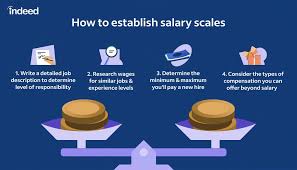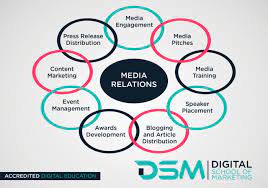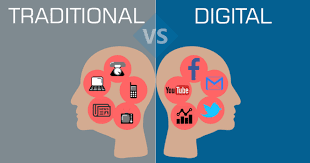Unlocking the Potential of Content Marketing Services in the UK
The Power of Content Marketing Services
In today’s digital age, content marketing has emerged as a powerful strategy for businesses to connect with their target audience, drive engagement, and ultimately, boost sales. Content marketing services play a crucial role in helping businesses create and distribute valuable, relevant content that resonates with their customers.
One of the key benefits of content marketing services is that they allow businesses to establish thought leadership and credibility in their industry. By consistently producing high-quality content that educates and informs their audience, businesses can position themselves as experts in their field, building trust and loyalty among their customers.
Content marketing services also help businesses improve their search engine rankings. By creating keyword-optimised content that is valuable and engaging, businesses can attract more organic traffic to their website, increasing visibility and driving conversions.
Furthermore, content marketing services enable businesses to engage with their audience on a personal level. By tailoring content to address the specific needs and interests of their target market, businesses can foster meaningful relationships with customers, leading to increased brand loyalty and advocacy.
Overall, content marketing services are essential for businesses looking to stay competitive in today’s crowded digital landscape. By investing in quality content that resonates with their audience, businesses can drive brand awareness, generate leads, and ultimately, achieve long-term success.
Seven Key Advantages of Content Marketing Services: Boosting Visibility, Credibility, and ROI
- 1. Enhances brand visibility and awareness.
- 2. Builds credibility and establishes thought leadership.
- 3. Drives organic traffic to the website through SEO.
- 4. Engages target audience with valuable and relevant content.
- 5. Generates leads and boosts conversions.
- 6. Fosters customer loyalty and brand advocacy.
- 7. Provides measurable results for ROI tracking.
Three Key Challenges of Content Marketing Services: Time Investment, ROI Measurement, and Standing Out in a Saturated Market
- Content marketing services can be time-consuming and resource-intensive, requiring dedicated effort to create high-quality content consistently.
- Measuring the ROI of content marketing services can be challenging, as it may take time to see tangible results and determine the effectiveness of the strategy.
- With the saturation of online content, businesses may struggle to stand out and capture their audience’s attention amidst the competition.
1. Enhances brand visibility and awareness.
Content marketing services play a vital role in enhancing brand visibility and awareness for businesses. By creating and distributing valuable and engaging content across various channels, businesses can increase their online presence and reach a wider audience. Consistent and strategic content marketing efforts help to establish brand recognition, attract new customers, and reinforce brand identity in the minds of consumers. This increased visibility not only drives traffic to the business’s website but also helps to build credibility and trust among potential customers, ultimately leading to long-term brand success.
2. Builds credibility and establishes thought leadership.
Content marketing services play a vital role in building credibility and establishing thought leadership for businesses. By consistently producing valuable and insightful content that addresses the needs and interests of their target audience, businesses can position themselves as experts in their industry. This helps to build trust with customers, enhance brand reputation, and differentiate the business from competitors. Through content marketing, businesses can showcase their knowledge and expertise, demonstrating authority in their field and ultimately gaining the respect and loyalty of their audience.
3. Drives organic traffic to the website through SEO.
One significant advantage of content marketing services is their ability to drive organic traffic to a website through effective Search Engine Optimization (SEO) strategies. By creating high-quality, keyword-optimised content that resonates with the target audience, businesses can improve their search engine rankings and attract more visitors to their website without relying on paid advertising. This not only increases visibility and brand awareness but also enhances the chances of converting these organic visitors into leads and customers, ultimately contributing to the long-term success of the business.
4. Engages target audience with valuable and relevant content.
Content marketing services excel in engaging the target audience with valuable and relevant content. By creating content that addresses the specific needs and interests of their audience, businesses can establish a strong connection with their customers. This personalised approach not only captures the attention of the target market but also builds trust and credibility, leading to increased brand loyalty and customer engagement. Ultimately, by providing valuable and relevant content, businesses can effectively communicate their message, drive conversions, and foster long-lasting relationships with their audience.
5. Generates leads and boosts conversions.
Content marketing services play a vital role in generating leads and boosting conversions for businesses. By creating valuable and engaging content that resonates with their target audience, businesses can attract potential customers and nurture them through the buyer’s journey. This strategic approach not only increases brand visibility but also establishes trust and credibility, ultimately leading to higher conversion rates and increased sales opportunities.
6. Fosters customer loyalty and brand advocacy.
Content marketing services play a vital role in fostering customer loyalty and brand advocacy by creating valuable and engaging content that resonates with the target audience. By consistently delivering relevant information and addressing the needs of customers, businesses can build strong relationships with their audience, leading to increased trust and loyalty. This results in customers becoming advocates for the brand, sharing their positive experiences with others and helping to amplify the brand’s reach and influence in the market.
7. Provides measurable results for ROI tracking.
Content marketing services offer a significant advantage by providing measurable results for tracking return on investment (ROI). By implementing analytics tools and tracking mechanisms, businesses can accurately measure the performance of their content marketing efforts. This data-driven approach enables businesses to assess the effectiveness of their strategies, identify areas for improvement, and make informed decisions to maximise ROI. With clear metrics and insights at their disposal, businesses can confidently allocate resources and refine their content marketing strategies to achieve tangible results and drive sustainable growth.
Content marketing services can be time-consuming and resource-intensive, requiring dedicated effort to create high-quality content consistently.
One significant drawback of content marketing services is the time and resources required to maintain a consistent stream of high-quality content. Businesses often underestimate the level of dedication and effort needed to produce engaging and valuable content on a regular basis. This can be particularly challenging for small businesses or those with limited resources, as creating compelling content demands a significant investment of time, expertise, and manpower. Failure to allocate sufficient resources to content creation can result in inconsistent messaging, decreased audience engagement, and ultimately, hinder the effectiveness of the content marketing strategy.
Measuring the ROI of content marketing services can be challenging, as it may take time to see tangible results and determine the effectiveness of the strategy.
One significant challenge of content marketing services is the difficulty in measuring the return on investment (ROI). Unlike some marketing strategies that yield immediate results, content marketing often requires time to see tangible outcomes and assess the effectiveness of the approach. This delay in measuring ROI can make it challenging for businesses to accurately evaluate the impact of their content marketing efforts and adjust their strategies accordingly. The long-term nature of content marketing outcomes means that patience and a comprehensive analytics framework are essential to fully understand the value and success of this marketing approach.
With the saturation of online content, businesses may struggle to stand out and capture their audience’s attention amidst the competition.
In the realm of content marketing services, a significant challenge arises from the oversaturation of online content. With countless businesses vying for their audience’s attention, standing out amidst the fierce competition can be a daunting task. The sheer volume of content available online can make it difficult for businesses to capture their target audience’s attention and differentiate themselves effectively. This con highlights the importance of crafting unique, compelling content that resonates with the audience to cut through the noise and make a lasting impact in the digital landscape.












